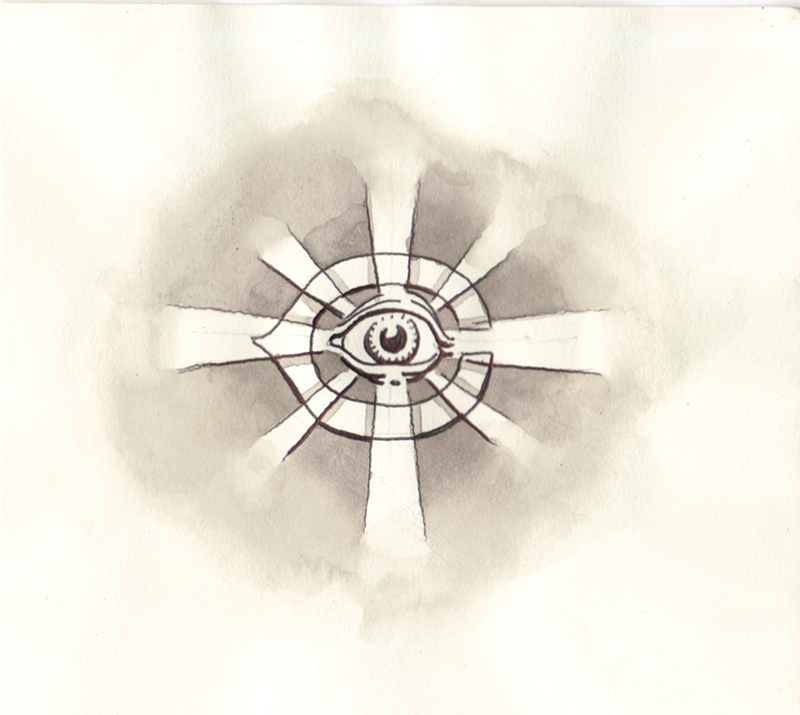I had done it a thousand times. Jumped in their car, drove through the tunnel, turned right out of it and then right into the underground parking lot. I did it for those who arrived late, or those who didn’t want to deal with the fans.
I did it this time as I always did, hurriedly — because I was busy — but still with more than a car-length ahead of the next vehicle, which in this case was one of those vans from the late ’80s that had curtains on the windows for some reason.
The game was going to be packed, you could tell. There were no empty spaces in the lot, which meant nothing to me because I was headed toward a roped-off area by the tunnel’s walk-in entrance to the stadium.
But the guy in front of me was going no such place. He saw an unlikely spot, slammed on his breaks, and before I could lay on the horn, had reversed his van in such violent, excited fashion that he backed into my charge.
I was aghast. I jumped out, meeting the van’s driver halfway, crying, “Oh my God, you just wrecked Barry Larkin’s new Mustang!”
The guy, who had heretofore looked haggard about his misstep, suddenly perked up. “Really?” he asked.
I escorted him to my passenger side and pointed to the gold plate with Barry Larkin’s signature above the glove compartment. He looked me over — I was wearing, top to bottom, a Cincinnati Reds uniform. “Who are you?” he asked. “I don’t recognize number 88.”
“I’m the ball boy,” I snapped. “It’s a BB, not an 88. What am I gonna tell Barry?”
“Tell ’em I said ‘I’m sorry,’ ” he said. The cops soon arrived, and I was issued a ticket for not having my license in my uniform pants, while he was reprimanded for the accident.
Now I had to walk into the clubhouse and break the news to the only Red who had once been kind enough to notice that, like Tracy Jones, I was using my little-league glove to toss ball with the pros.
“You sure you want to use that thing?” he had asked. Then, digging under his locker, he pulled out a beautiful black piece of leather the size of an oven mitt — with, of course, his name stitched in red cursive on its backside. “Here, try this one.” It was merely a suggestion.
I never felt comfortable complaining to Barry that once I took off for vacation his glove disappeared from my locker. Now I had to tell him that I wrecked his new car, this at a time when he was making peanuts, comparatively speaking.
I was on the verge of tears as I saw him in the clubhouse, mere minutes from game-time. “Barry, I got some bad news,” I choked. I then told him what had transpired and he briefly hugged me and said, “Nothing you can do about it, Spicoli,” for that was my nickname there.
I felt like the Earth had been removed from my shoulders as I ran out to my stool in right field. It wasn’t until the game started that I noticed that Barry Larkin was no longer in the lineup.
The axiom about Vegas — what happens stays there — was co-opted from the cardinal rule of the clubhouse. It’s not only to blame for most sports coverage being boring, it also obscures the few, true moments of grandeur the enterprise provides.
Because the glory of Barry Larkin isn’t the story of being born fully formed to be enshrined in Cooperstown, which will occur this summer, it’s much more interesting — and difficult — than that. I don’t think I’m telling any tales out of school by saying that the Reds in the late-’80s were struggling with a proliferation of “me-first” attitudes.
I wasn’t there personally, but I heard rumors that certain players — Buddy Bell among them — intervened and attempted to mentor Barry in such a way as to impart that team cohesiveness, and winning, were of first import.
Maybe the end would have been the same either way. Regardless, Barry Larkin responded by learning to speak Spanish, by batting anywhere in the lineup, by taking a pay cut to stay with his team, excelling all the while, without a whiff of performance-enhancing drugs.
There’s a saying that champions are not born, but made. Some clichés exist for a reason. Most women are ambivalent about sports, to say the least, while feigning interest in good men. Well, I haven’t known many of the latter, but here is one. Character counts, in 2012 and 1988. And I am a better man for knowing him as a boy.
Damn, I wish I still had that glove. But I got something else instead: an education. I’ll honor that.
CONTACT MARK FLANIGAN: [email protected]






